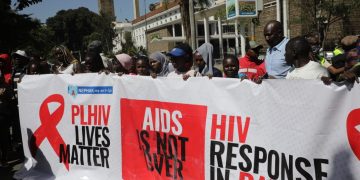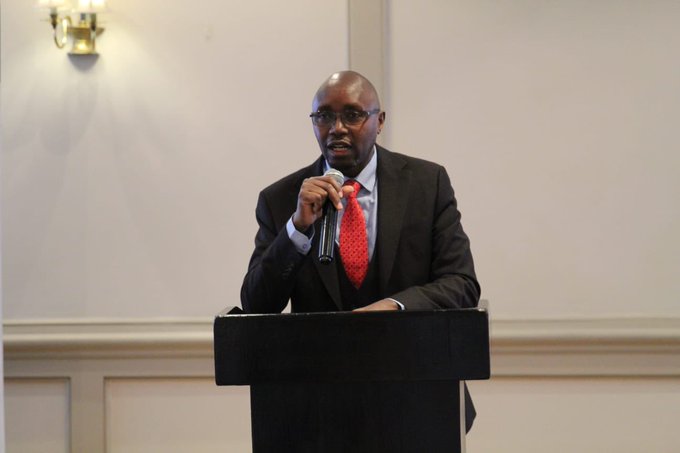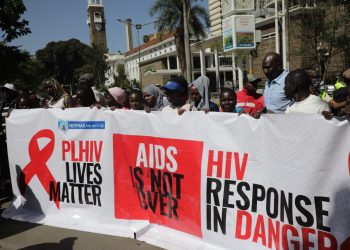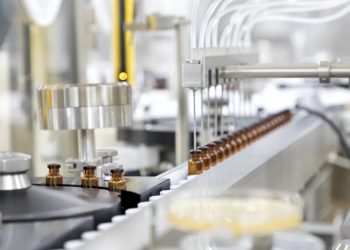In a move to tackle the escalating cost barriers to essential health commodities, stakeholders in Kenya’s healthcare sector are pushing for tax exemptions on critical medical supplies.
During a recent Nairobi meeting aimed at examining and strengthening domestic health financing mechanisms, key players, including Aids Healthcare Foundation Kenya (AHF) and several Health Civil Society Organizations (CSOs) like Health NGOs Network (Hennet), The National Empowerment Network of People living with HIV/AIDS in Kenya (NEPHAK), WACI Health, and Stop TB Partnerships, highlighted the dire consequences of current tax policies on public health.
The CSOs call to action comes amid rising taxes that have significantly impacted the availability and affordability of essential medical items such as condoms, gloves, and diagnostic equipment.
Dr. Samuel Kinyanjui, AHF Kenya Country Program Director, emphasized the urgency of addressing these cost barriers.
“Taxes have made cost of condoms to be prohibitively high,” Dr. Kinyanjui stated adding that “there is a need to relook at taxation of condoms to help cut down financial barriers to condom usage which will in turn improve condom access especially to the nation’s most vulnerable.”
He said that the shortage of condoms has far-reaching economic implications. “The total cost of treating 400,000 STIs annually is approximately Shs 1,548,000,000.00 while every new HIV infection costs around 806,250,000.00 annually.”
He pointed out that the high taxes on medical supplies are exacerbating the challenges faced by healthcare providers and end-users alike.
“Additionally, the complications from 200,000 unplanned pregnancies amount to Shs 6,450,000,000.00, These figures do not account for the lost productivity of sick Kenyans.”
According to Kinyanjui, in 2021, only 190,110,760 male condoms were distributed against a need for 424 million, while 3,090,000 female condoms were distributed against a need for 8,206,345.
The shortfall, he says highlights a significant gap in supply, with only 14.3 condoms distributed per man per year against a global target of 40.
Condoms are crucial commodities in the prevention of sexually transmitted infections (STIs) and unplanned pregnancies.
They were previously classified as medical supplies but are now categorized as medical devices, attracting a 16 percent VAT since 2022.
The Kenyan government has incrementally increased taxes on medical supplies over the past few years in 2020/2021 budget government introduced a 14percent VAT on medical supplies, including essential items like gloves and diagnostic equipment.
The 2021/2022 budget maintained the 14percent VAT and added a 10percent import duty on certain medical devices.
In 2022/2023 budget increased VAT on medical supplies to 16percent and introduced excise duties on specific medical products.
While 2023/2024 budget continued the 16percent VAT and expanded the range of taxed medical supplies, including advanced medical equipment and consumables.
This reclassification has led to a significant decrease in the availability of free condoms, as many donors and organizations are deterred by the added costs.
According to Dr Kinyanjui, Kenya’s total condom market share is dominantly in the public sector, which provides over 84percent of condoms for free.
“With the reduction in donor funding, the future of free condoms is uncertain, raising concerns about increased preventable diseases and unplanned pregnancies.”
He adds that the social marketing sector accounts for 14percent, and the commercial sector, with potential for growth, currently accounts for less than 2percent.
The CSO’s meeting held in conjunction with the National Health Assembly’s Health Committee, focused on gathering end-user insights and exploring solutions to reduce cost barriers.














